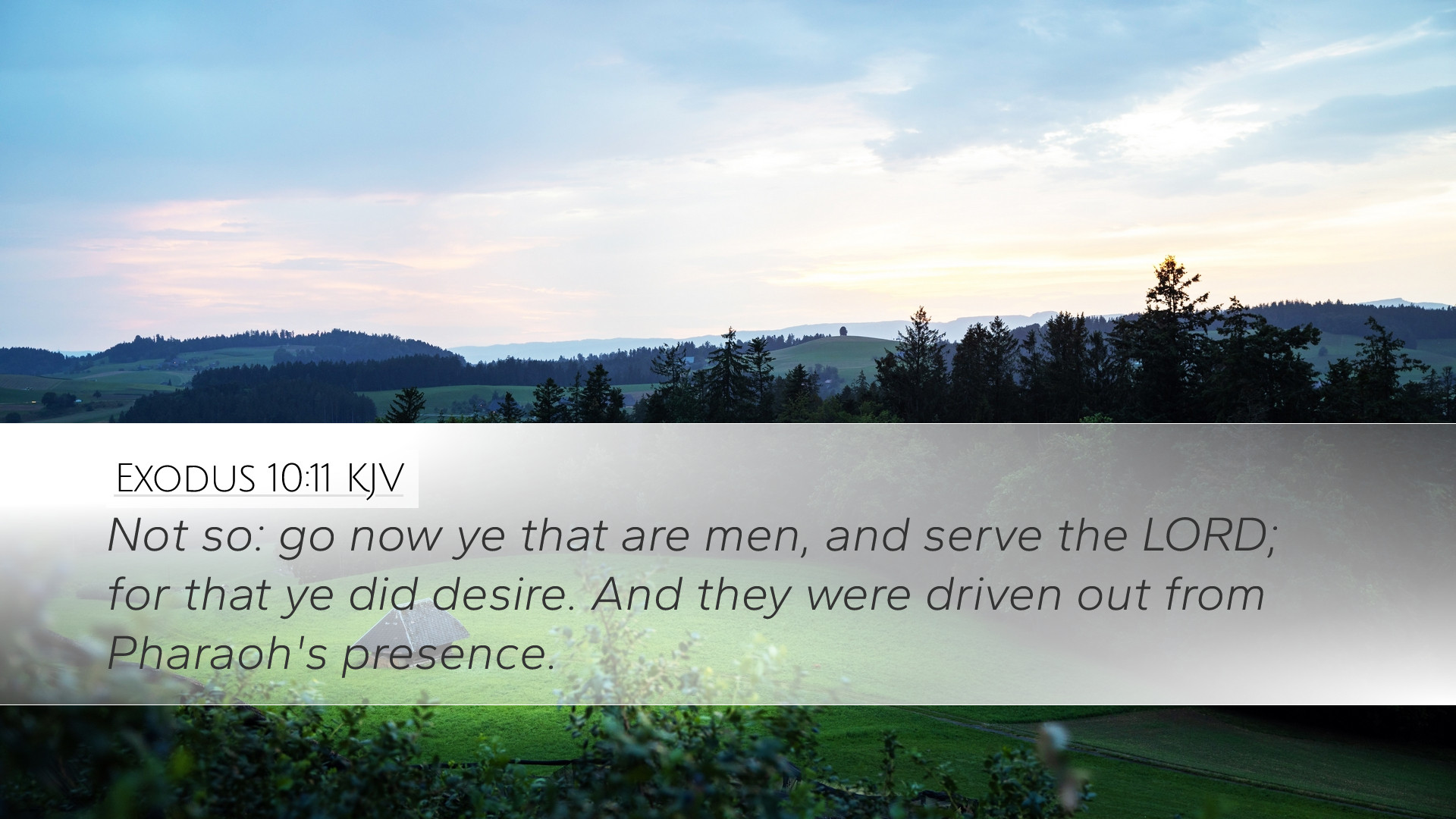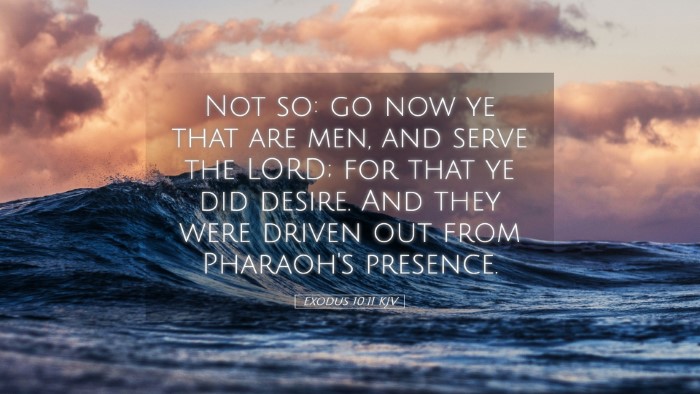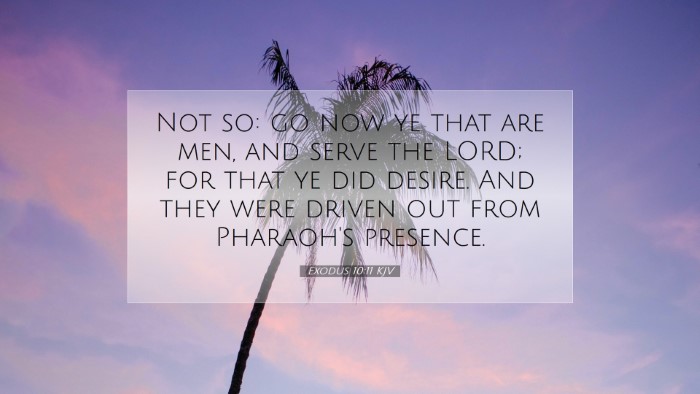Commentary on Exodus 10:11
Exodus 10:11 states: "Not so: go now ye that are men, and serve the Lord; for that ye did desire. And they were driven out from Pharaoh's presence."
Contextual Background
This verse occurs during the narrative of the plagues of Egypt, where God, through Moses, commands Pharaoh to let the Israelites go free. The context is crucial for understanding the dynamics of power, faith, and obedience.
Verse Analysis
Pharaoh's Response: Pharaoh's insistence that only men should go to serve the Lord reveals his desire to control the situation. He is willing to negotiate but only within his terms.
Significance of 'Men': The reference to "men" emphasizes the notion of strength and leadership. Pharaoh wants to keep the families and labor force intact, demonstrating his unwillingness to allow the full liberation of the Israelites.
Theological Insights
- God's Sovereignty: The refusal of Pharaoh highlights God’s ultimate authority over all earthly powers. God's purpose will prevail despite human resistance.
- Obedience to God: The command to go and serve the Lord emphasizes the idea of complete submission to God's will. It serves as a reminder of the broader call to discipleship.
- Resistance to Divine Will: Pharaoh’s obstinacy introduces a recurring theme—the struggle between human pride and the divine decree. This showcases the futility of opposing God's intentions.
Insights from Public Domain Commentaries
Matthew Henry
Matthew Henry notes that Pharaoh’s reluctance to let the Israelites go completely serves as a profound illustration of the human heart’s propensity to resist God. Henry emphasizes how Pharaoh attempts to dictate terms to God’s commands, reflecting how humans often negotiate with divine truths to suit personal agendas.
Henry further highlights the imagery of being "driven out," signifying not just Pharaoh's dismissal but also a spiritual insight into the struggle between God’s chosen people and oppressive forces. The act of being driven out symbolizes the necessary separation from sin and bondage towards liberation in God.
Albert Barnes
Albert Barnes elaborates on the phrase "go now ye that are men" as a trick of Pharaoh, which reveals his sinister intention to weaken Israel by not allowing families to worship together. Barnes asserts that true service to God requires full commitment and the unity of the family in worship practices.
Moreover, Barnes notes that God’s command to go is unconditional; true worship is about total devotion to God, excluding half-measures. This insistence serves as a broad principle applicable in the lives of believers, encouraging a complete surrender of all facets of life to God's glory.
Adam Clarke
Adam Clarke provides cultural context to the verse, interpreting Pharaoh’s reluctance as an act of arrogance. Clarke states that Pharaoh's proposition to send only the men is a tactic to maintain control over the Israelites while cleansing his own land of their influence. He highlights the importance of understanding the historical and cultural dynamics at play during this exchange.
Clarke also emphasizes the assertion of God's command as a necessity for the liberation of an entire people, not just a subset. This reflects a broader theological truth about God’s desire for total redemption, extending to all facets of life and worship.
Practical Application
- Understanding Authority: As leaders and shepherds within the church, it is important to recognize that God’s authority should guide all actions and decisions.
- Community in Worship: The unity of the family in worship reflects God’s design for communal relationship; this should influence the way we foster congregational life.
- Resistance and Persistence: Followers of Christ must be aware of the natural human tendency to negotiate terms with God. Continuous prayer and reliance on the Holy Spirit are essential for overcoming these tendencies.
Conclusion
Exodus 10:11 serves as a profound reminder of the necessity for total commitment to God's agenda over our own. The refusal of Pharaoh exemplifies human resistance to divine authority, while the call to worship encompasses all aspects of life, uniting the community in a collective echo of praise and submission. As we strive to study and apply the lessons from this verse, let us pray for a heart willing to embrace God’s complete plan for our lives and ministries.


